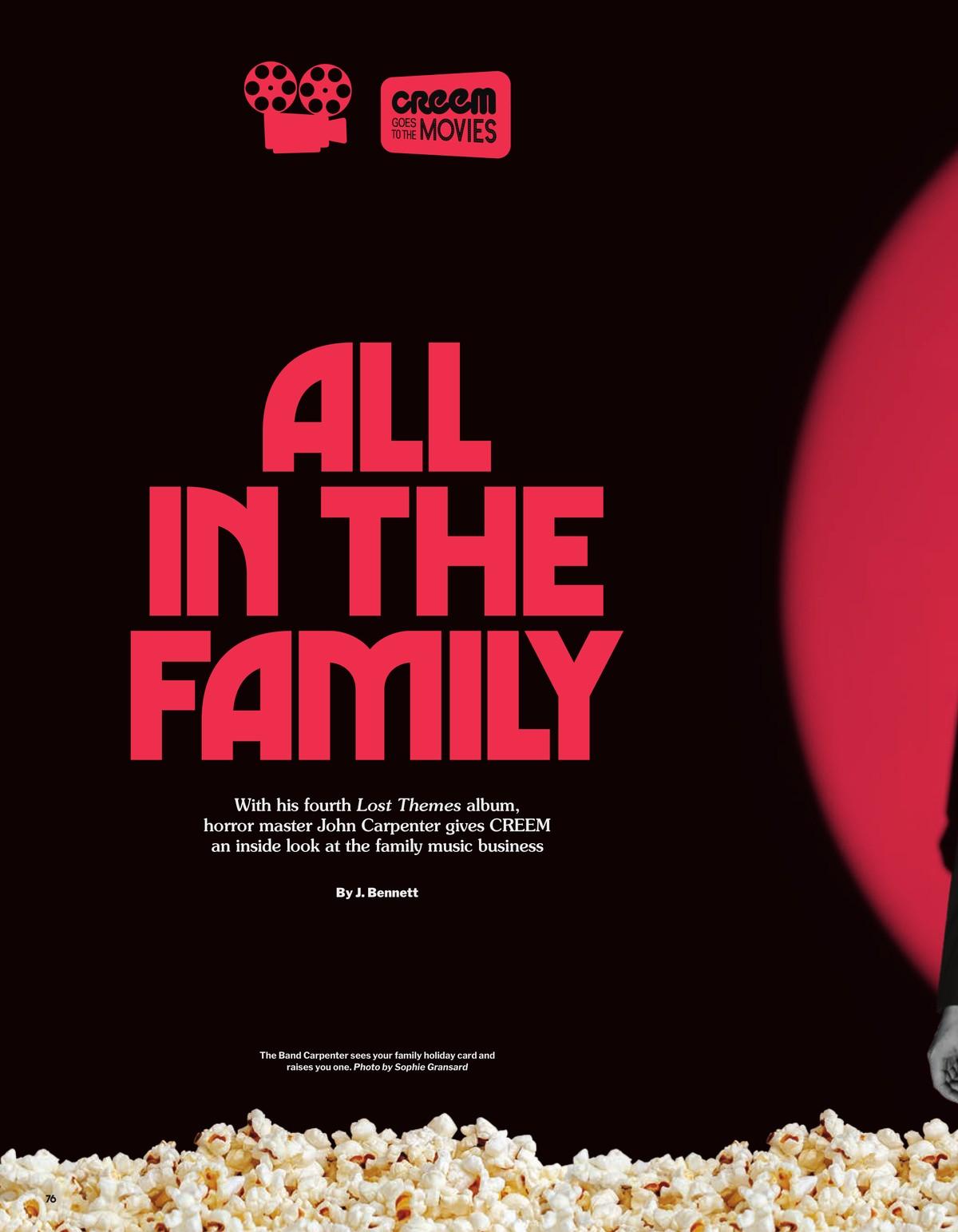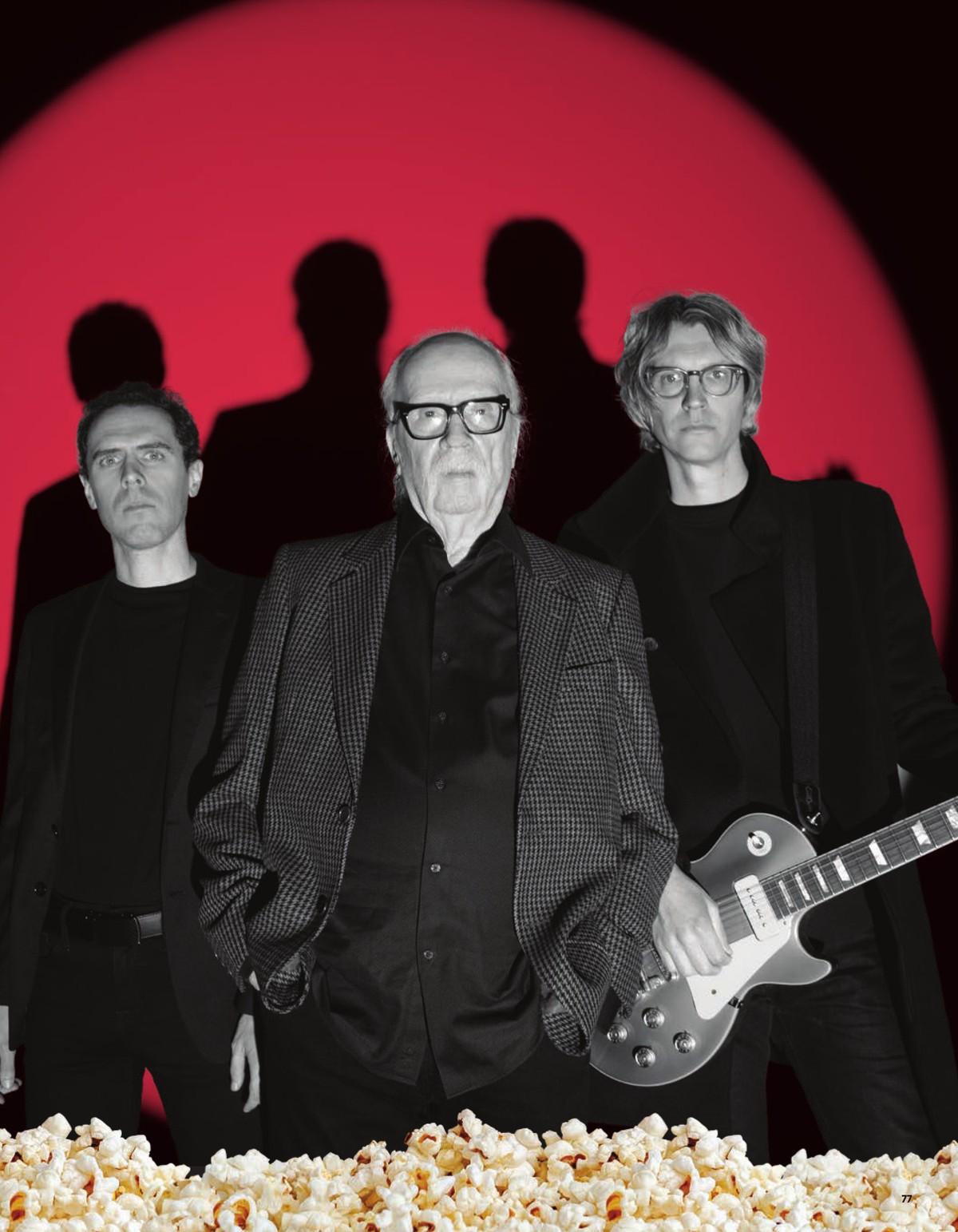ALL IN THE FAMILY
With his fourth Lost Themes album, horror master John Carpenter gives CREEM an inside look at the family music business
June 1, 2024


Loading...

With his fourth Lost Themes album, horror master John Carpenter gives CREEM an inside look at the family music business


Loading...